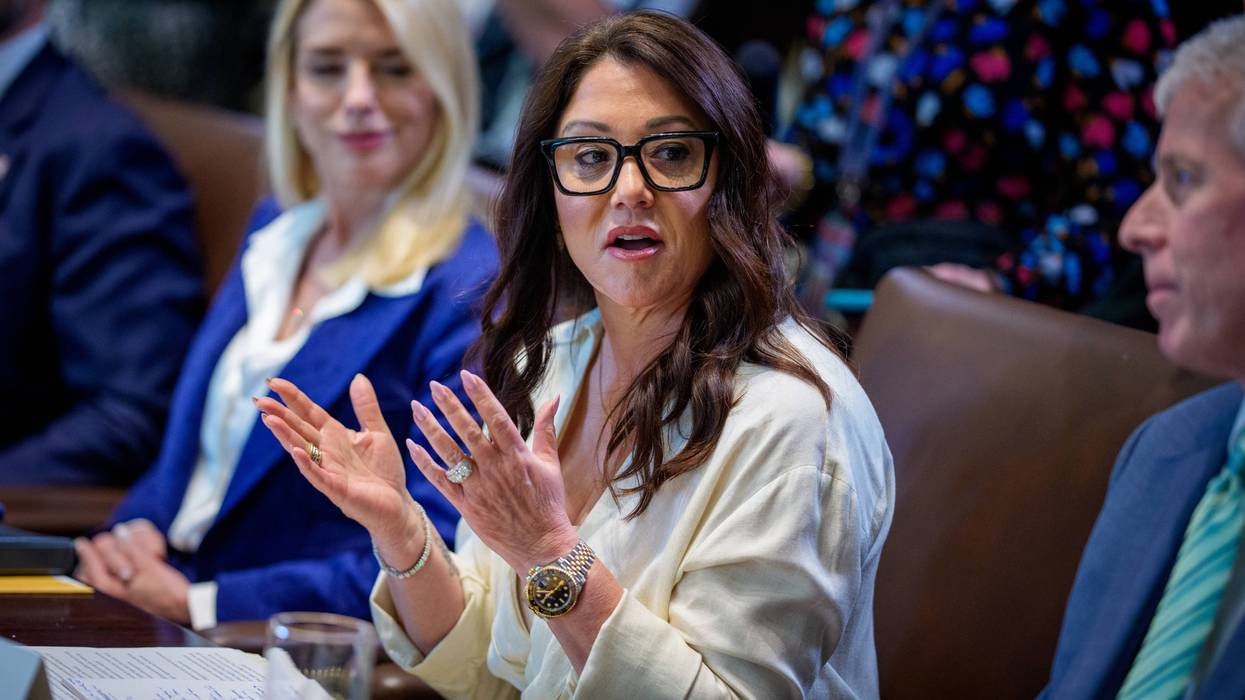In an investigation and legal case that dragged on for almost four years, one
of the largest organic cattle producers in the United States, Promiseland
Livestock, LLC, was suspended from organic commerce, along with its owner and
key employees, for four years. The penalty was part of an order issued by
administrative law judge Peter Davenport in Washington, DC
on November 25.
Promiseland, a multimillion dollar operation with facilities in
Missouri and Nebraska, including over 13,000 acres of crop land, and managing
22,000 head of beef and dairy cattle, had been accused of multiple
improprieties in formal legal complaints, including not feeding organic grain
to cattle, selling fraudulent organic feed and "laundering"
conventional cattle as organic.
"We are pleased that justice has been served in the Promiseland
matter," said Mark A. Kastel, Senior Farm Policy Analyst for the
Wisconsin-based Cornucopia Institute. Scrutiny from Cornucopia, one of
the industry's most aggressive independent watchdogs, was part of the genesis
for the comprehensive USDA investigation and subsequent legal proceedings.
Promiseland
became the focus of Cornucopia's investigation into giant
factory farms, milking thousands of cows, that were allegedly operating
illegally. Promiseland sold thousands of dairy cows to giant factory
dairy farms owned by Dean Foods (Horizon Organic), Natural Prairie
Dairy in Texas and Aurora Dairy based in Colorado. Aurora and Natural
Prairie
supply private-label, store-brand milk for Wal-Mart, Costco, Target and
major
supermarket chains such as HEB, Safeway and Harris Teeter.
"It appears that it was the investigation into improprieties by Aurora that finally led
to the hammer coming down on Promiseland," Kastel observed. Aurora operates five dairies in Texas
and Colorado
and was found by USDA investigators to have "willfully" violated 14
tenets of federal organic regulations in 2007. However, Bush
administration officials let the $100 million corporate dairy continue in
operation under a one-year probation.
"It's sad that the civil servants at the USDA, who had recommended
Aurora be
decertified, were overruled," Kastel lamented. "They should
have been banned from organic commerce the same way Promiseland, and its owner
Tony Zeman, now have been."
Although Cornucopia has praise for the professionalism of law
enforcement agents at the USDA, and the career staff at the National Organic
Program (NOP), who carried out the Aurora and Promiseland investigations, the
farm policy research group has harshly criticized past management at the USDA
which allowed Promiseland, and Aurora, to operate illegally for years.
"From formal legal complaints that we filed, Bush Administration
officials at the USDA were alerted, starting in January 2005, to the alleged
improprieties by massive factory farms masquerading as organic," said Will Fantle, Research Director for The Cornucopia
Institute.
Documents secured under the Freedom of Information Act (FOIA) by The
Cornucopia Institute indicate that the initial investigation was squashed for
political reasons by Dr. Barbara Robinson, who until recently directed the
USDA's organic program.
"It is inexcusable that these improprieties took place for so long
and that justice was delayed," said Gary Cox, an attorney who represents
Cornucopia. "Ethical organic dairy farmers have been placed at a
distinct competitive disadvantage and consumers were obviously taken advantage
of."
An investigation by the Office of Inspector General at the USDA,
focusing in part on the relationship between Robinson and prominent
agribusiness lobbyist and lawyer Jay Friedman, was profiled in a July 3 Washington Post story. Friedman, in
addition to representing Aurora and Dean Foods, also was the lawyer for
Promiseland when they were targeted by the USDA for investigation.
New documents made public have prompted Cornucopia to prepare
additional legal complaints asking the USDA to focus attention now on Quality
Assurance International (QAI), the certifier for Promiseland when many of the
alleged abuses took place.
"This is not the first time QAI has been suspected of incompetence
or improperly accommodating corporate agribusiness," said Fantle.
The Robinson, Friedman and QAI connection is part of an investigation by the
USDA's Inspector General. QAI also certifies portions of Aurora's operation
and Dean Foods' corporate-owned industrial dairies.
"However grim it sounds, this investigation and the legal
proceeding illustrate that if organic stakeholders are persistent, the system
works," Kastel said.
Cornucopia and other organic policy groups have been delighted by what
they have called a "decisive shift" that has taken place since Obama
administration officials have taken over at the USDA and its organic program.
At a recent industry meeting in Washington, D.C., Miles McEvoy, USDA
Deputy Administrator and the new director of the National Organic Program,
stated emphatically that we were now entering the "age of
enforcement" at the NOP.
"We started asking for new management at the organic program in
2004," said Kastel. "We had suggested that they go outside of
the Department to gain the needed expertise from someone who was universally
respected by participants in the organic industry. We couldn't have asked
for a more qualified candidate than Mr. McEvoy."
In addition to investigating QAI, Cornucopia has formally asked USDA
Secretary Tom Vilsack to reopen the Aurora
matter, alleging that the consent agreement allowing their probation included
illegally favorable provisions. The farm policy group also asked that
complaints involving Dean Foods and its Horizon label, which had languished
under the Bush administration since early 2005, now also be actively
investigated by the new administration.
"We think that organic consumers and the family farmers who have
built this industry have good reason to be optimistic and confident that from
this point forward, when they see the organic seal on a product, they know that
the public servants in Washington
share their steadfast desire to maintain the integrity of the organic label,"
Fantle stated.




